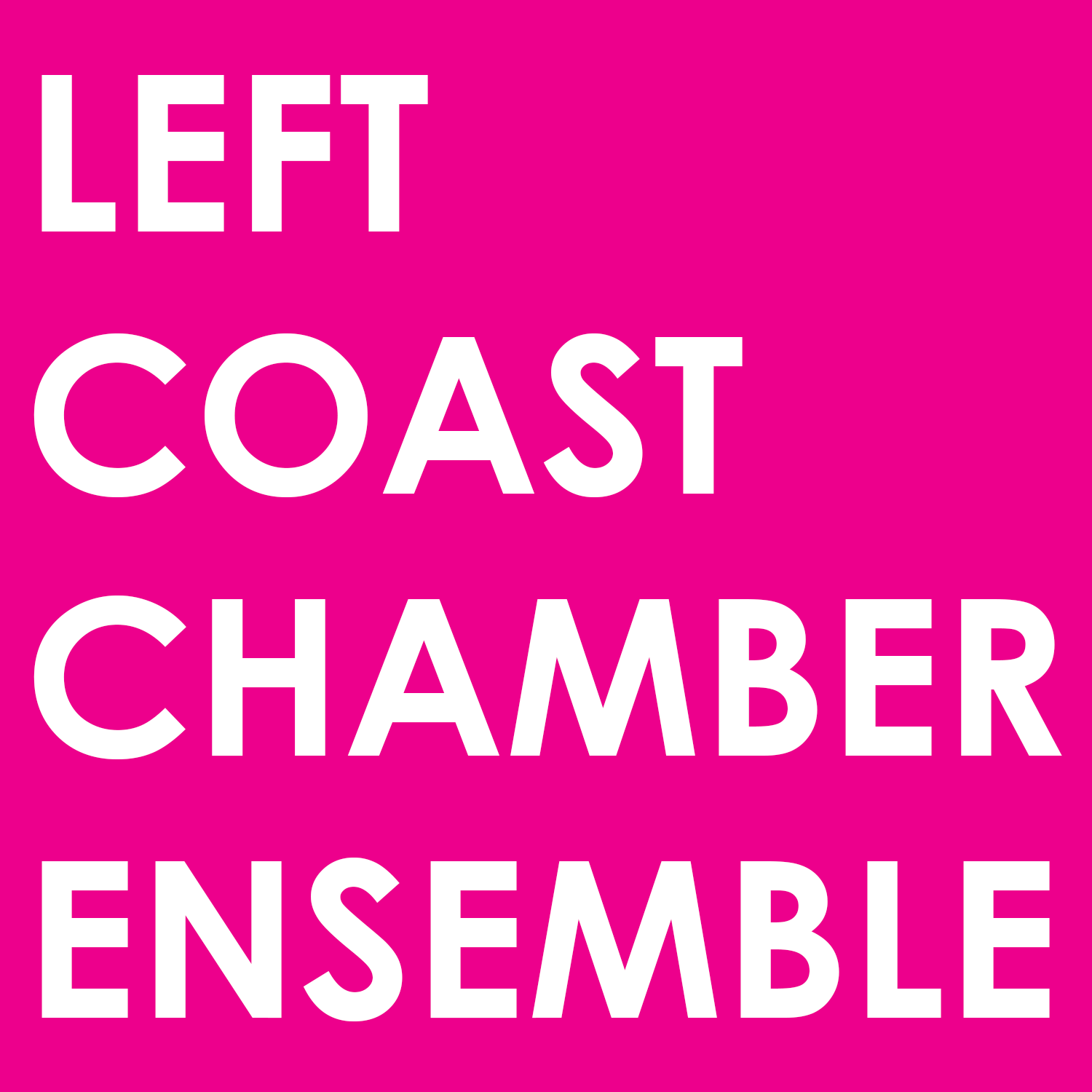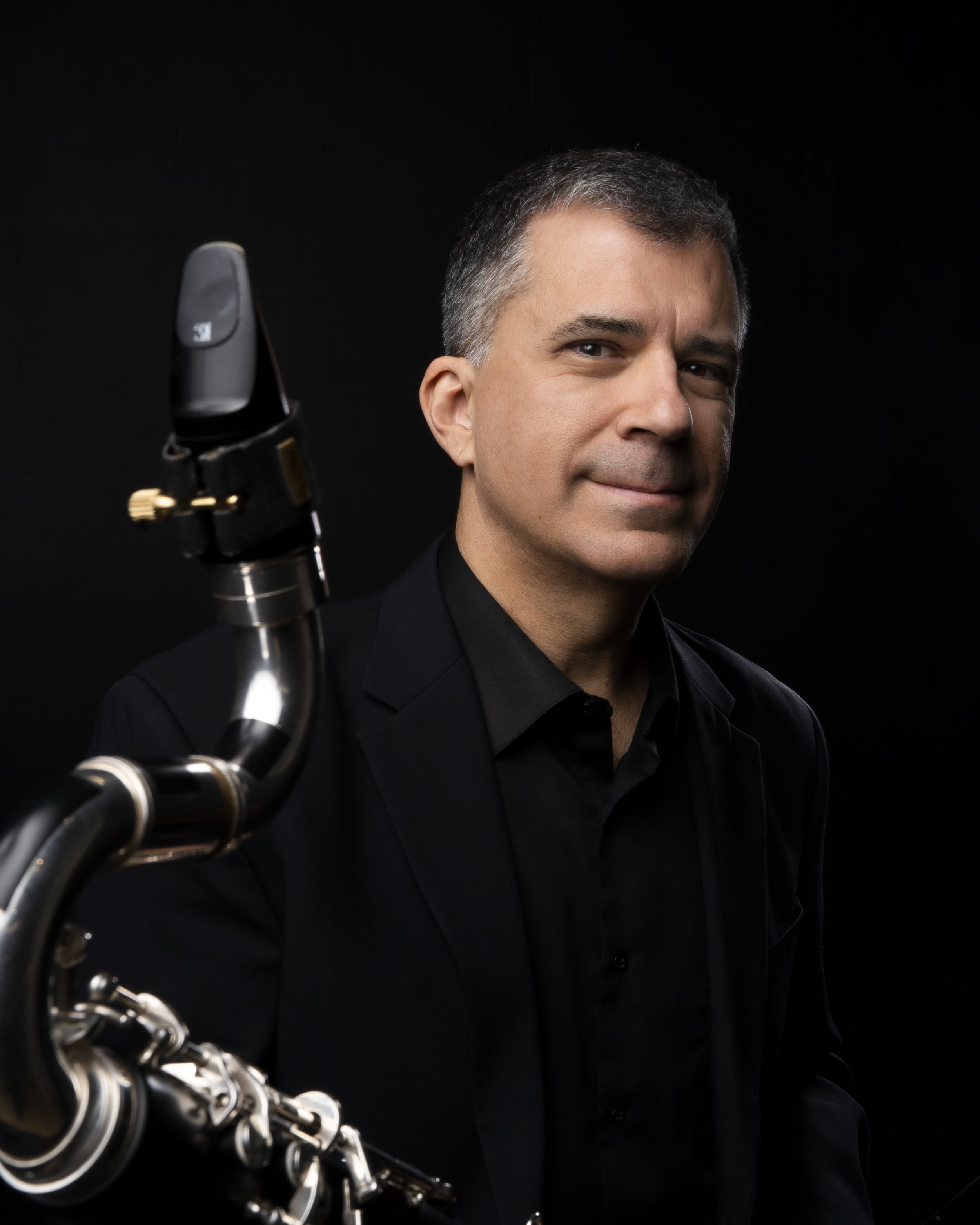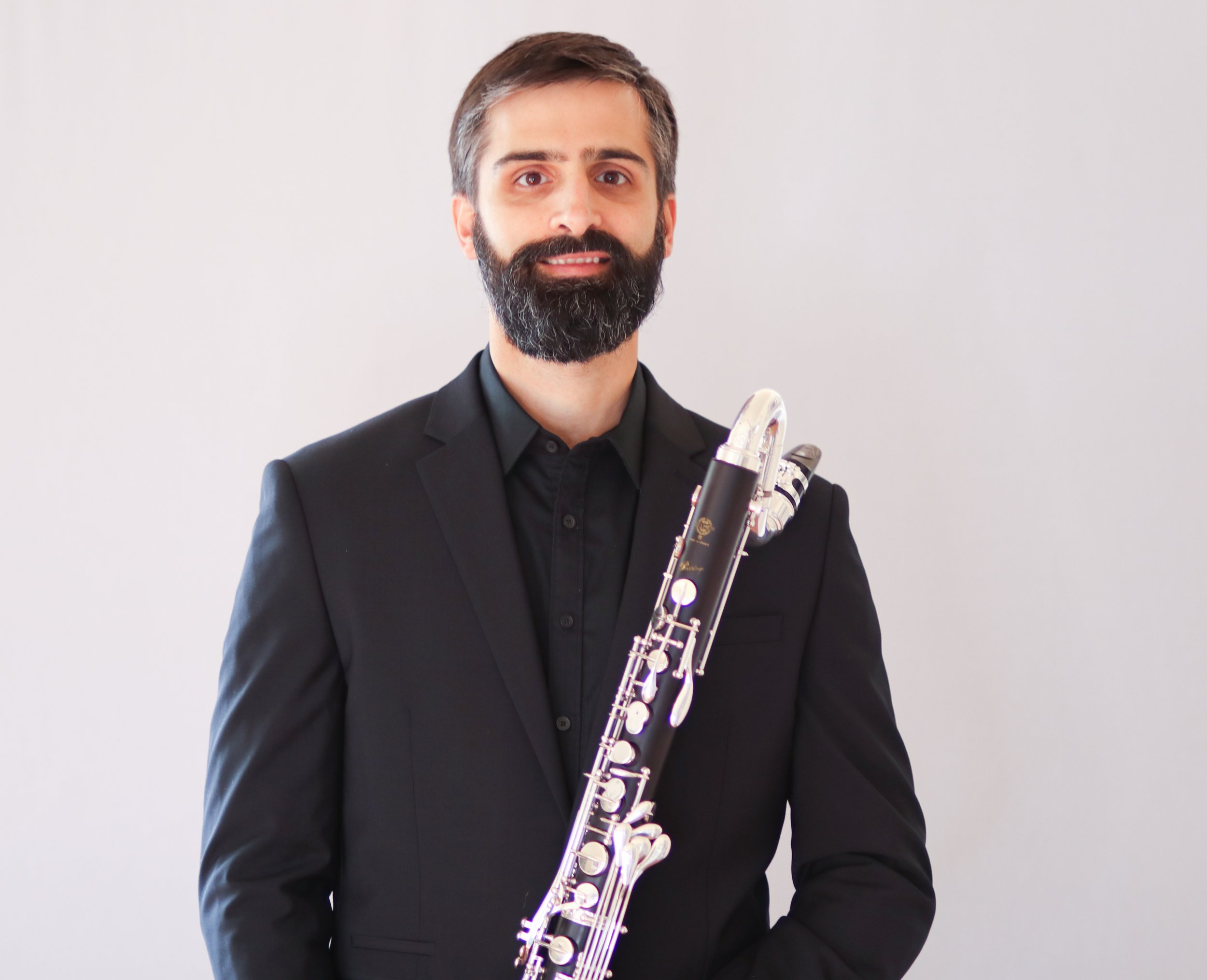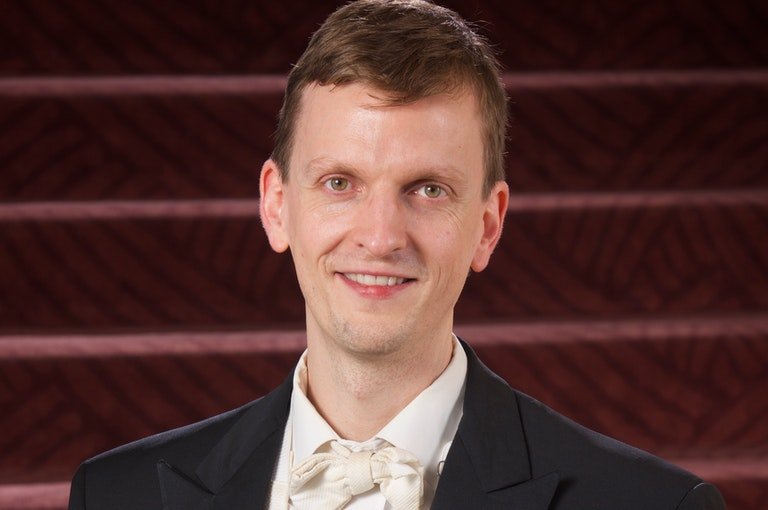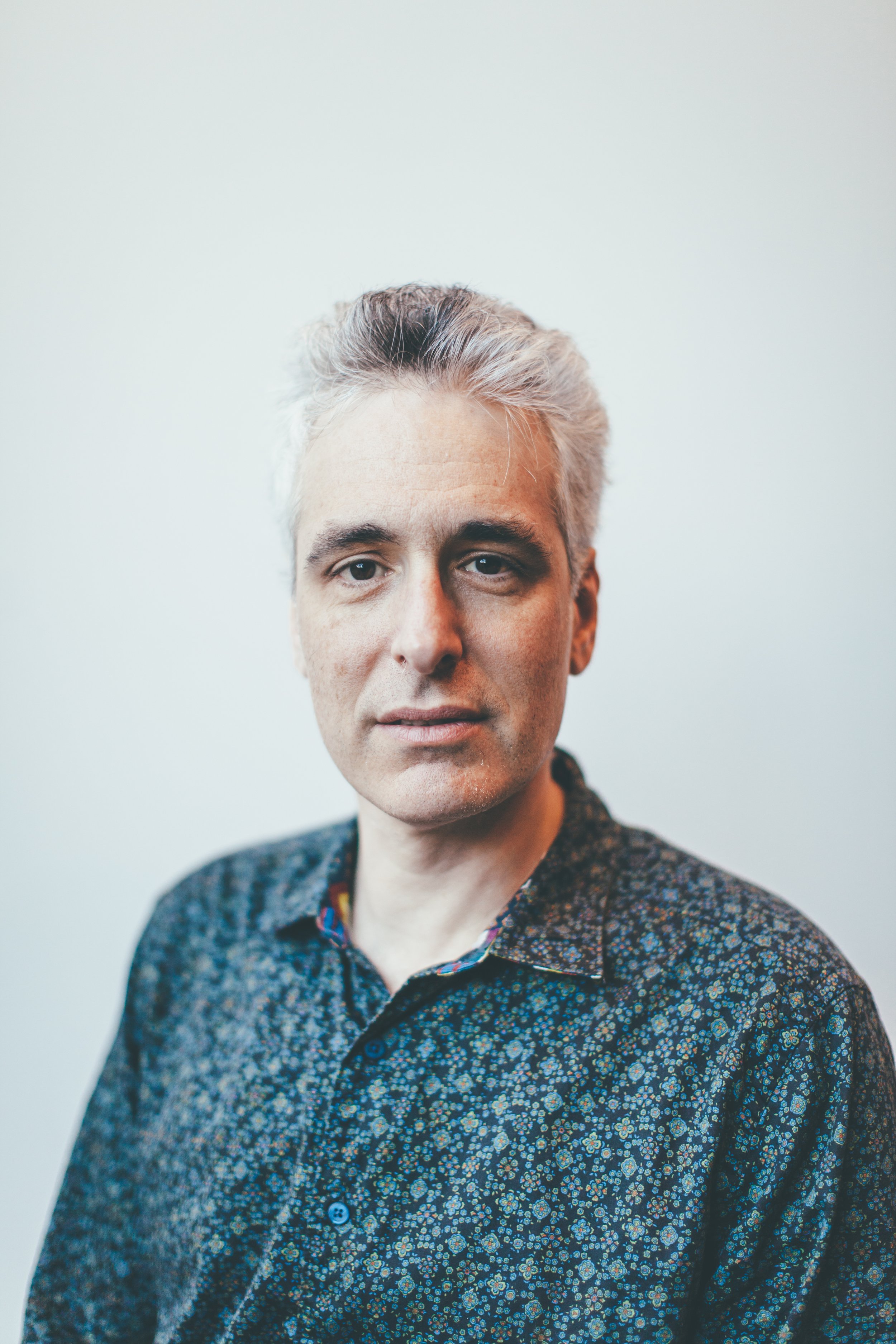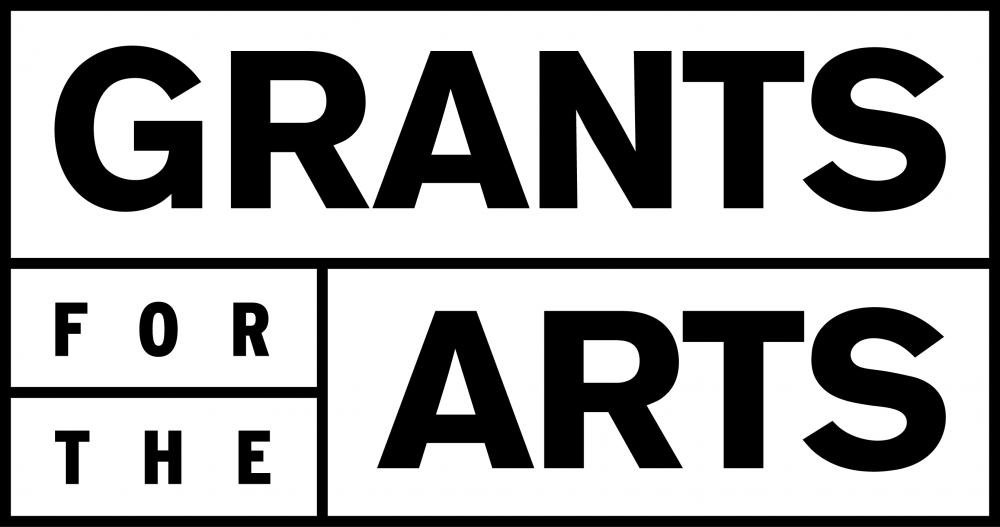Clarinet Party
Boards of Canada/Jeff Anderle - Zoetrope
Olly Wilson - Echoes
David Garner - Suite for Bass Clarinet and Piano - World Premiere
Sebastián Tozzola - Seven Pasos
Jessie Montgomery - Peace
W.A. Mozart - KV 439b/V - Divertimento for 3 basset horns No. 5 in B flat major
For an evening of clarinet virtuosity, LCCE brings together three amazing clarinetists: Left Coast’s Jerome Simas and guests Jeff Anderle, a founding member of the ensembles Sqwonk and Splinter Reeds, and Carey Bell, principal clarinetist of the San Francisco Symphony. The trio will perform Mozart’s Divertimento for 3 Basset Horns and an arrangement by Anderle of the song Zoetrope. David Garner’s new clarinet work receives its world premiere and music of Olly Wilson, Jesse Montgomery and Sebastián Tozzola is also featured.
Concert Program
Clarinet Party Student Flyer
Clarinet Party Info Flyer
LIVE CONCERT SUNDAY, APRIL 10, 2022, 7:30PM
BERKELEY, CA
BERKELEY HILLSIDE CLUB
2286 CEDAR ST, BERKELEY, CA 94709 (AT ARCH ST)
LIVE CONCERT MONDAY, APRIL 11, 2022, 7:30PM
SF CONSERVATORY OF MUSIC
50 OAK STREET, SAN FRANCISCO, CA 94102
Program Notes
BOARDS OF CANADA Scottish brothers Michael Sandison and Marcus Eoin began playing together as children, eventually forming the electronic music band Boards of Canada in the 1980s.They have released multiple albums, including Music Has the Right to Children (1998) Geogaddi (2002) and Tomorrow’s Harvest (2013.) Allmusic describes their sound as "evocative, mournful, sample-laden, downtempo music often sounding as though produced on malfunctioning equipment excavated from the ruins of an early-'70s computer lab.” The musicians themselves, in addition to relating their sound to the influences of musicians, Joni Mitchell, the Beatles, Meat Beat Manifesto, and the Incredible String Band, have expressed their fascination with music’s magic, saying “We do actually believe that there are powers in music that are almost supernatural. I think you actually manipulate people with music."
“Zoetrope is a song by the Scottish electronic music duo Boards of Canada from their album In a Beautiful Place Out in the Country. I have always loved the piece and felt it would work well on clarinet, so I had this arrangement made to release on a solo album of mine in 2018. In the original, various digital delay effects were used to create the piece which has been re-created with 16 clarinet and bass clarinet tracks plus these three solo voices.” –– Jeff Anderle
DAVID GARNER I have long wanted to write a “modern” dance suite analogous to the Baroque dance suites of Bach, Telemann, Handel and others. These suites were not really meant to be danced to, but rather used the dance-form as a “jumping-off place” to explore the rhythm and affect of the dances. They incorporated the musical language of the times.
I first worked with Jerome Simas in connection to the premiere and recording of my “Trio for Five Instruments”, which bassist Stephen Tramontozzi commissioned. When Mr. Simas subsequently approached me to write him a bass clarinet piece, a dance suite was the very first thing that came to mind. The bass clarinet is an amazingly versatile and agile instrument--indispensable in large orchestral writing. There are many fine pieces written for it in the concert music realm, as in the works by Marc Eychenne and Jon Russell.
The dances of the 20th and 21st centuries are influenced by “popular” music, but do not retain the direct lineage to indigenous folk music that the Baroque dances have. Instead, “modern” dances seem to be the children of the blues, jazz, and rock and roll. I chose to explore 5 “modern” dances: the Charleston, the Stroll, Lindy-Hop, Doo Wap and Funk. As with earlier suites, these dances are not meant to be danced to, but rather explore the affect and idiom of each.
I am extremely grateful to Jerry and Eric for their hard work and artistry in bringing this suite to life. It is also important to acknowledge the San Francisco Conservatory of Music, without whose support this work would not have been possible. (April, 2022).
OLLY WILSON Composer Olly Wilson was born in St. Louis in 1937 and died in Oakland in 2018, having served on the faculty of the University of California, Berkeley for over thirty years before his retirement in 2002. He played several instruments, including both piano and clarinet, and integrated electronic music in his compositions. He founded the electronic music studio at Oberlin College as a faculty member there early in his career and his interest in this musical resource persisted. As he described it, “With electronic media you can work with sound like a sculptor or painter.” In addition to receiving commissions from ensembles like the Boston and San Francisco Symphonies, and being awarded a Guggenheim Fellowship to study African music in Ghana, Wilson was a revered teacher, instructing and guiding generations of composers.
“Echoes was commissioned by the clarinetist Phillip Rehfeldt and the composer Barney Childs in 1974 as part of a project to stimulate the composition of contemporary chamber music for “clarinet and friend” (i.e. clarinet and piano, clarinet and electronic tape, etc.). As the title implies, Echoes is based on a continuous interaction between the clarinet and the electronic sound source which share common pitches, timbres, and musical gestures, while simultaneously developing a larger musical shape. The work contains three organically related sections which gradually evolve from one another in a single continuous movement. The tape portion was produced at the University of California, Berkeley, Electronic Music Studio. In performance, the output of the clarinet is amplified and mixed with that of the pre-recorded electronic tape which is then projected from multiple speakers, placed on the stage or (ideally) around the hall. The work was given its premiere by Phillip Rehfeldt at Redlands University in January 1975, and is recorded by Mr. Rehfeldt on CRI SD 367.” — Olly Wilson
SEBASTIÁN TOZZOLA Multi-instrumentalist and composer Sebastián Tozzola specializes in the bass clarinet and is bass clarinet soloist in the Orquesta Filarmonica of Buenos Aires, Teatro Colón. He also pursues his love of Argentinian folk music, tango, jazz, and film scores, in composition and performance. He can be heard as a session musician, in a duo with pianist Anais Crestin, in Juan Pablo Navarro’s contemporary Tango septet, and in recordings of his own compositions for bass clarinet and bass guitar. In those duo recordings, he plays both parts.
7 Pasos, for two bass clarinetists, exploits the delicious possibilities of bass clarinet. In the introductory section, marked “Very Rhythmic,” meters change frequently. This creates quick switches between a swinging feeling and vertical angular shapes, and carries us to the main part of the piece, marked, “Groove, exaggerating accents.” It is in a faster tempo and is written in 7/4 meter. Zippy, sharply articulated voices in rhythmic unison alternate with areas where there are smoother melodies, first in one clarinet part and then the other. Tozzola also sets the players free for twelve bars of improvisation, with the option to repeat this section as desired before returning to the earlier material.
JESSIE MONTGOMERY Jessie Montgomery is an acclaimed composer, violinist, and educator. She is the recipient of the Leonard Bernstein Award from the ASCAP Foundation, and her works are performed frequently around the world by leading musicians and ensembles. Her music interweaves classical music with elements of vernacular music, improvisation, language, and social justice, placing her squarely as one of the most relevant interpreters of 21st-century American sound and experience. Her profoundly felt works have been described as “turbulent, wildly colorful and exploding with life” (The Washington Post).
“Written just a month after the Great Sadness of the first quarantine orders due to COVID-19, facing the shock felt by the whole globe as well as personal crisis, I find myself struggling to define what actually brings me joy. And I’m at a stage of making peace with sadness as it comes and goes like any other emotion. I’m learning to observe sadness for the first time not as a negative emotion, but as a necessary dynamic to the human experience.” — Jessie Montgomery, May 12, 2020
MOZART AND THE BASSET HORN The basset horn does not show up as often as some of its better-known siblings in the clarinet family, but more than one composer has had a soft spot for its distinctive sound. Johannes Brahms, for instance, wrote to Clara Schumann in 1855 about hearing an aria “...sung by Mrs. Guhrau with orchestra. To my great joy she was accompanied by two basset horns. I don't think any instrument suits the human voice better." Anton Sadler, the clarinetist for whom Mozart wrote the Clarinet Quintet and Clarinet Concerto, was also a fan and wrote basset horn trios of his own. The instrument’s narrow bore combined with its length results in increased resistance and mellow tone.
According to basset horn specialist Róbert Šebesta, “It is probable that W. A. Mozart’s basset horn trios were written for “Hausmusik” evenings at the home of the Dutch botanist Nikolaus Joseph Franz von Jacquin. Mozart was often to be found at the von Jacquin household in the early 1780s, where chamber music would be performed by Mozart, von Jacquin’s son and daughter, and other musicians living in Vienna, such as the basset horn virtuosos Anton and Johann Stadler…These were musicians of refinement and taste who clearly inspired Mozart to produce chamber music at its most subtle and inventive.”
Mozart’s K. 439b includes 25 movements for wind trio which were played in his day by all different combinations of instruments in whatever order the players wished. The 1812 edition issued by music publisher Simrock grouped the pieces into six divertimenti. The fifth of these, the one on tonight’s program, differs from the others in that it starts with an Adagio, includes a Polonaise and a Romanze, and has only one Minuet movement instead of two.
COVID-19 CONCERT POLICY:
(EFFECTIVE THROUGH OUR 29TH SEASON, JUNE 2022)
Masks: All patrons are required to wear a face mask which completely covers the mouth and nose at all times inside event venues.
Vaccination:
Audience Members 12+: Left Coast Chamber Ensemble requires proof of *up-to-date vaccination for entrance into any Left Coast event.
Audience Members 11 and under: proof of **full vaccination as appropriate against COVID-19 or a negative COVID-19 test (PCR test within 48 hours of the event, or antigen [rapid] test within 24 hours of the event).
Food & Drink: Food & drink is not permitted to be consumed inside event venues.
